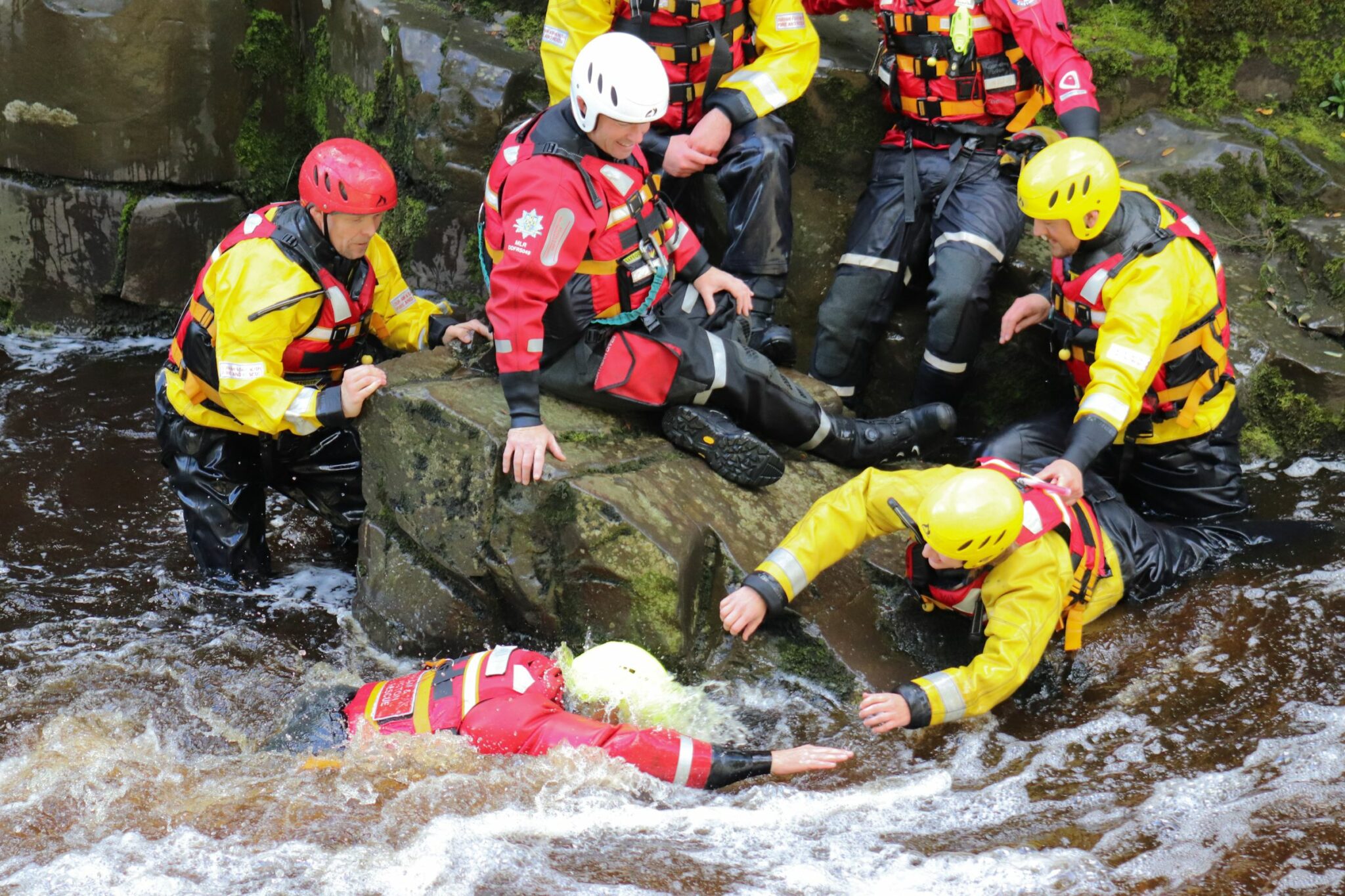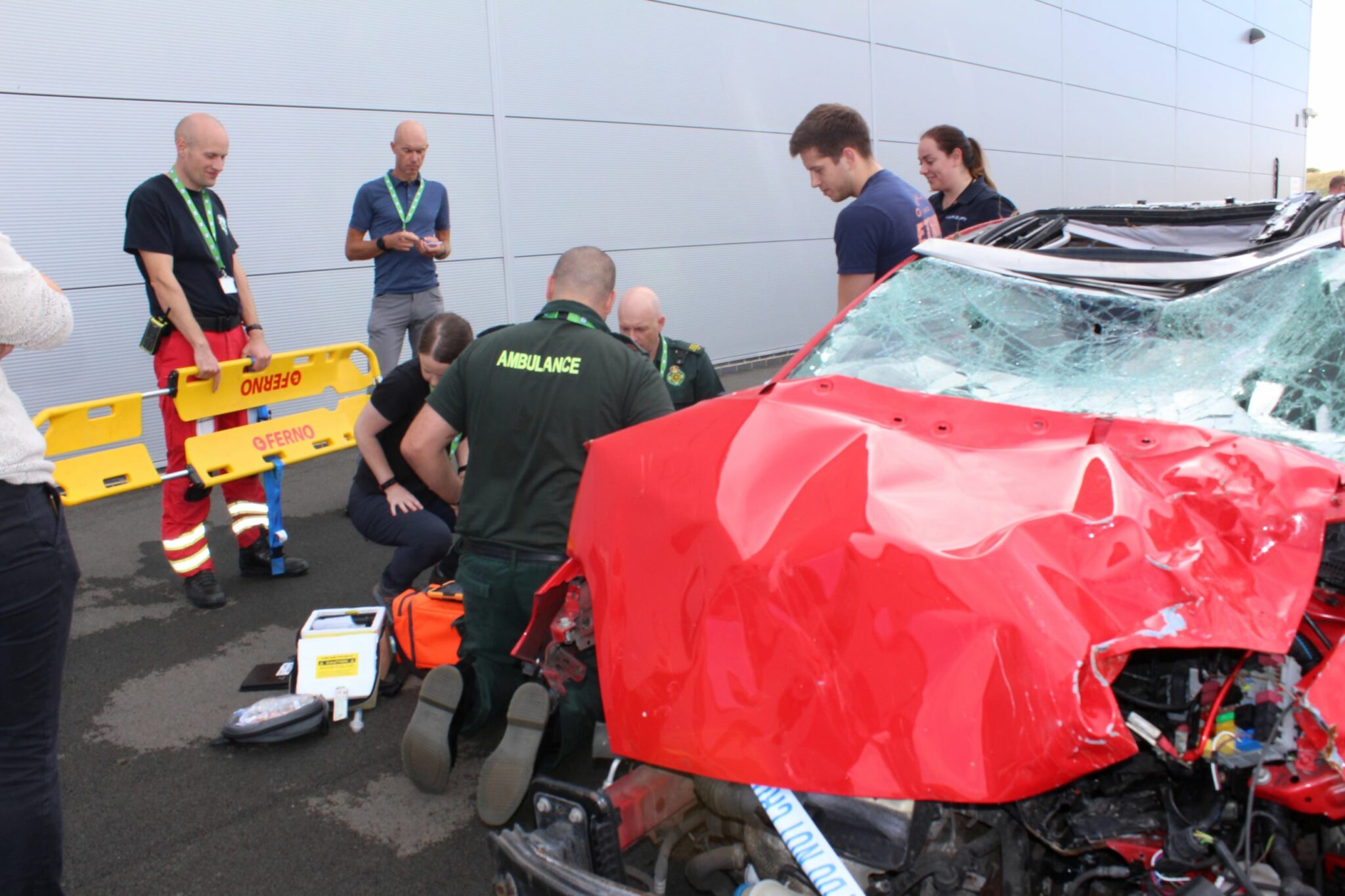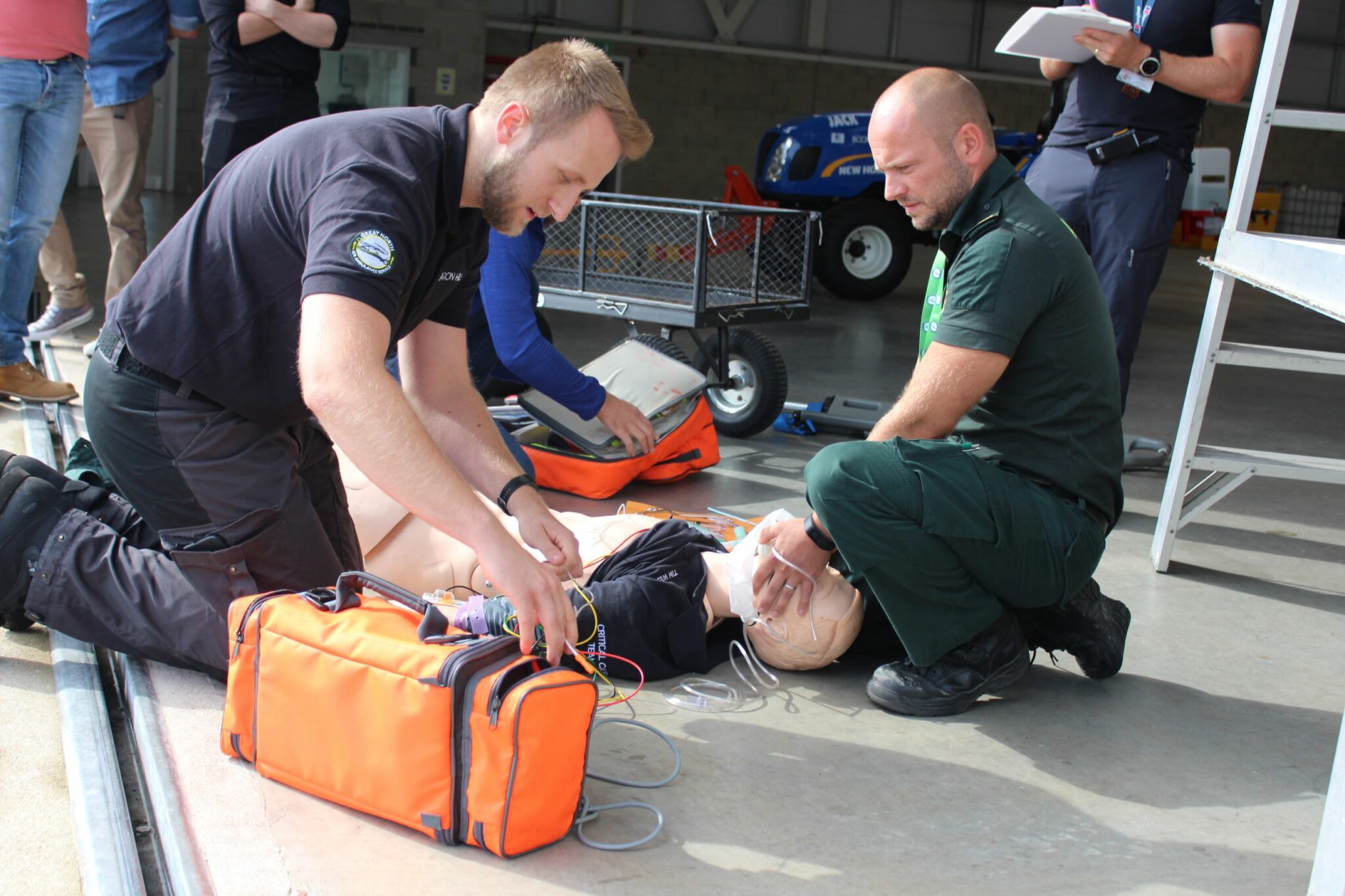A first-of-its-kind study focused on monitoring the stress levels of emergency workers involved in pre-hospital care has been published.
As part of the study, Mark Wetherell, a Professor of Psychobiology at Northumbria University, worked with the Great North Air Ambulance Service to monitor and assess emergency workers during an intensive two-week-long pre-hospital emergency medicine training programme.
They found significant differences in medics’ stress levels during the training programme when compared to their rest periods.
Participants displayed notably higher levels of anxiety, stress, worry, heart rate, and cortisol on training days compared to their rest days.
The research team say the evidence of these heightened psychobiological responses highlights the importance of recovery time for emergency responders to help to mitigate the long-term effects of stress response on their bodies.
The study, which was funded by the BIAL Foundation, allowed the research team to work with the Great North Air Ambulance Service which provides a realistic scenario-based training course for medics once a year.
During the intensive training course, doctors and paramedics face a series of real-life scenarios including road traffic accidents, firearms and terrorist incidents, swift water rescue operations and complex multi-patient scenarios, all of which are designed to provide the skills and knowledge they need to work in highly complex and stressful emergency environments.

Almost 30 doctors and paramedics took part in the study. Researchers took samples of their saliva throughout each day to measure their cortisol levels and collected data on their heart rate variability from smartwatches provided to all participants.
The participants were also asked to report on their levels of physical and mental anxiety, emotional stress and self-confidence on waking up and before going to sleep.
As the course went on the training scenarios intensified both physically and mentally and included changes in shift patterns and incidents running back-to-back, which emergency responders would experience during their day-to-day roles. On these most intense days, the medics experienced even higher levels of psychobiological response and reported lower levels of coping resources and control.


Professor Mark Wetherell, who is based in Northumbria University’s Department of Psychology, explained: “When people attend an emergency situation their bodies immediately go through rapid psychobiological responses which are essential in helping them to deal with a critical incident.
“This is all well and good in the short term but if these responses occur frequently, or are sustained, as they are for emergency responders, then this can place undue strain on physiological systems and could lead to long term health and wellbeing problems including burnout.
“Our study found significant increases in psychobiological activity in people experiencing highly stressful high-fidelity emergency medicine training.
“Worryingly, the greatest levels of psychobiological activity occurred on the days when people felt they had the least control over the situation and the least coping resources – these were the days that were most representative of the kind of activities that they encounter in their everyday lives.”


Professor Wetherell added: “Recent reports show that more than 50% of those who provide emergency medical care are experiencing moderate to high levels of burnout so this study shines a spotlight on what can be done to help the long-term health and wellbeing of these professionals working in this sector.
“It reinforces the importance of recovery periods to avoid the negative consequences of repeated and sustained activation of the physiological and biological mechanisms required to deal with challenging events.”
The study, Assessing the psychobiological demands of high-fidelity training in pre-hospital emergency medicine, is published in the Scandinavian Journal of Trauma, Resuscitation and Emergency Medicine.


